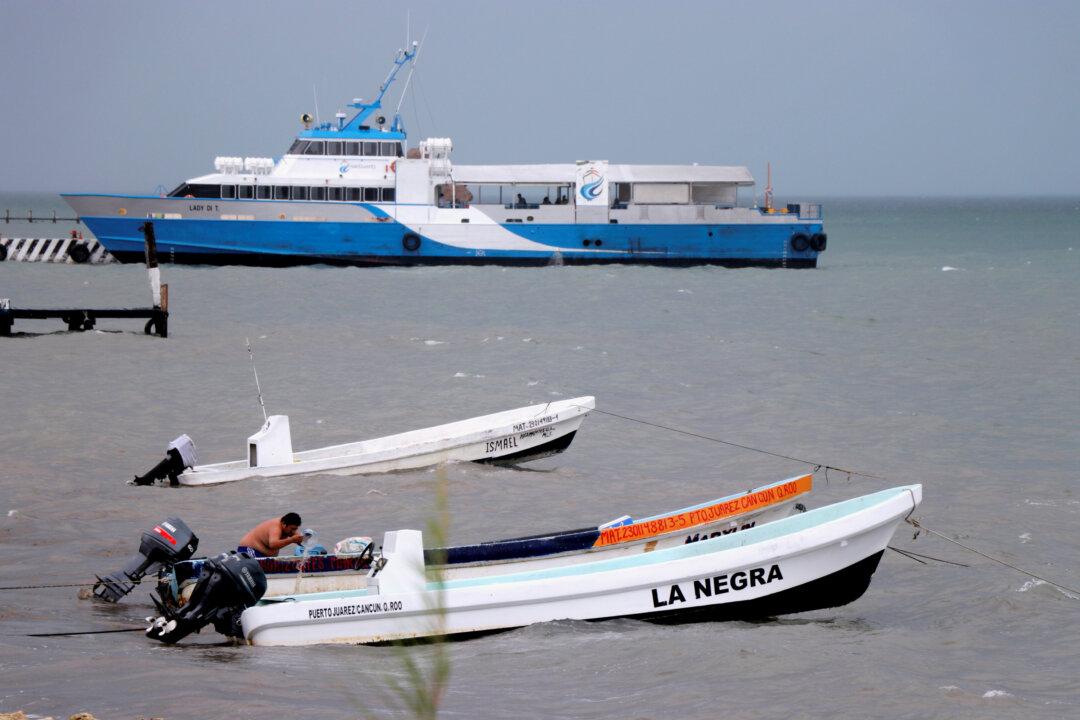Tropical Storm Michael is on track to hit the Florida Panhandle midweek as a Category 2 hurricane packing 100 miles per hour or stronger winds, the U.S. National Hurricane Center (NHC) said on early Oct. 8, in an advisory.
The tropical storm is expected to swell into a Category 1 hurricane as soon as Monday night or early Tuesday as it rolls into the Gulf of Mexico, with winds of 70 mph, as of 5 a.m. eastern time, forecasters said, just shy of being named a hurricane.





